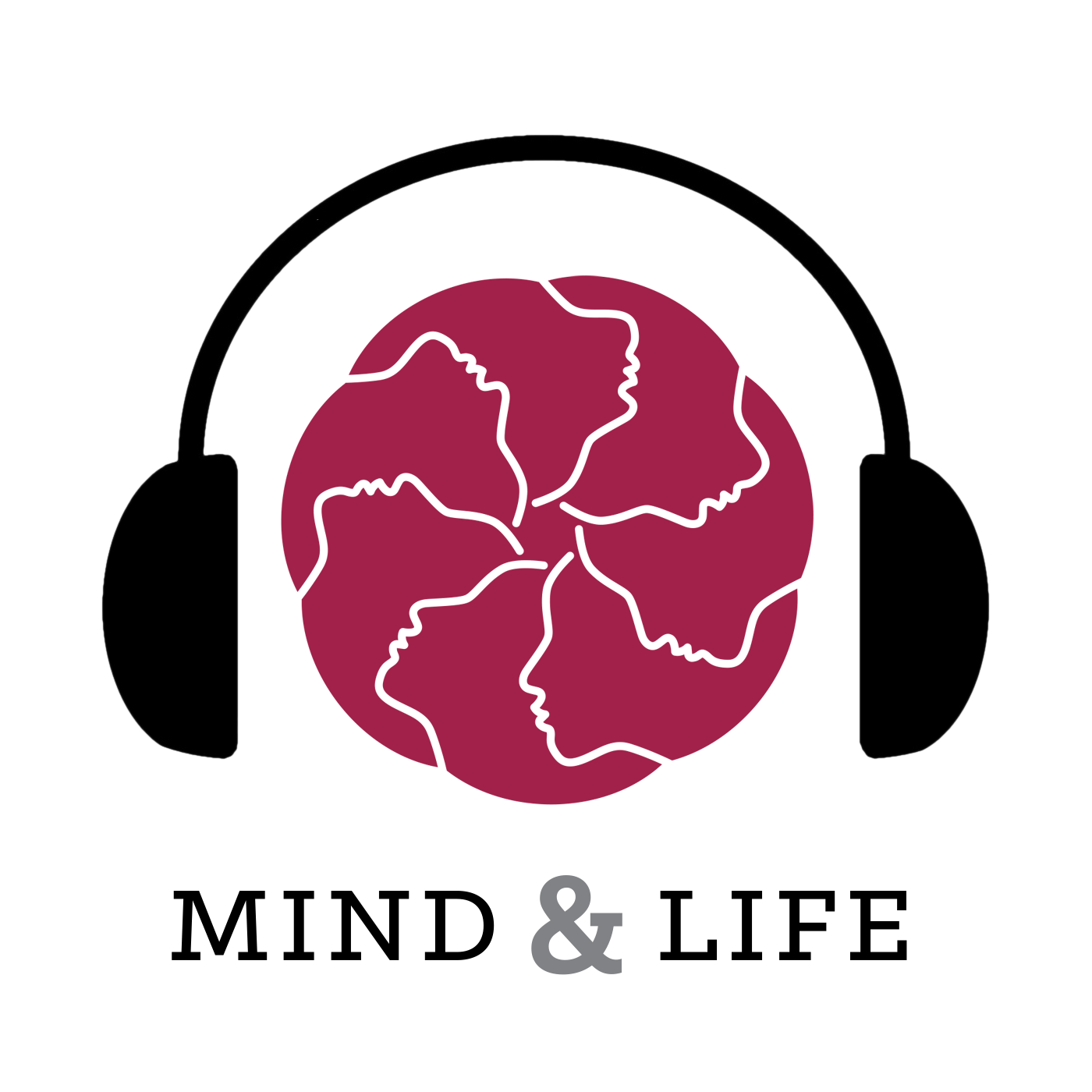Episodes
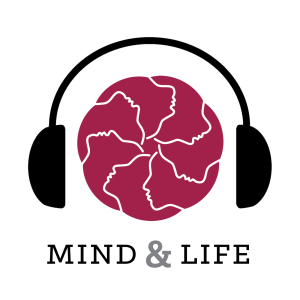
Friday Oct 08, 2021
Nicholas Van Dam - Nuancing the Narrative
Friday Oct 08, 2021
Friday Oct 08, 2021
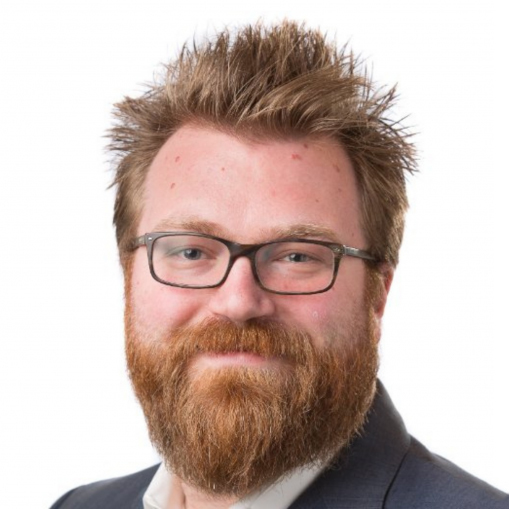 In this episode, Wendy speaks with meditation researcher and clinical psychologist, Nicholas Van Dam. Nicholas is the Director of the Contemplative Studies Centre at the University of Melbourne—the first such center in Australia. His work explores how meditation and mindfulness can support well-being, and help with conditions like anxiety and depression. This conversation covers many topics, including:
In this episode, Wendy speaks with meditation researcher and clinical psychologist, Nicholas Van Dam. Nicholas is the Director of the Contemplative Studies Centre at the University of Melbourne—the first such center in Australia. His work explores how meditation and mindfulness can support well-being, and help with conditions like anxiety and depression. This conversation covers many topics, including:
- how an existential crisis led him to meditation practice;
- bringing loving critique to contemplative science;
- the complicated realities of mindfulness, how we measure it, and its impact on the brain;
- looking at effects beyond just the individual who is meditating;
- insights from a year of daily practice;
- balancing personal interest vs. research objectivity;
- the freedom that comes from letting go;
- how skills learned on the cushion transfer to daily life;
- deconstructing the self;
- mindfulness and meditation for anxiety and depression;
- getting out of your head and into your body;
- connecting with Indigenous and other non-Buddhist contemplative traditions;
- and advancing evidence-based research on meditation.

Friday Sep 24, 2021
Rhonda Magee - Mindfulness, Interconnection, and Justice
Friday Sep 24, 2021
Friday Sep 24, 2021
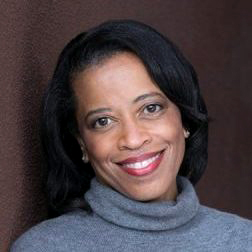 In this episode, Wendy speaks with law professor, author, and meditation teacher, Rhonda Magee. Rhonda's work has focused on bringing contemplative approaches into the practice of law, and the fight for social justice. This conversation covers many topics, including:
In this episode, Wendy speaks with law professor, author, and meditation teacher, Rhonda Magee. Rhonda's work has focused on bringing contemplative approaches into the practice of law, and the fight for social justice. This conversation covers many topics, including:
- her path to contemplative practice from roots in the American South;
- mindfulness in the fight for racial justice;
- embracing equanimity when you really want a certain outcome;
- contemplative approaches in law;
- awakening to our interconnectedness;
- challenging the idea of one winner/one loser (the adversarial model in law);
- balancing individual rights with a connected whole;
- restorative justice and collaborative divorce;
- how racism harms us all (including white folks);
- bias, fear and safety in the body;
- how dominator culture cuts us off from our bodies;
- racial capitalism;
- ColorInsight vs. color blindness;
- and the joy that comes from embracing our shared humanity.

Friday Sep 10, 2021
Jon Kabat-Zinn - The Heart of Mindfulness
Friday Sep 10, 2021
Friday Sep 10, 2021
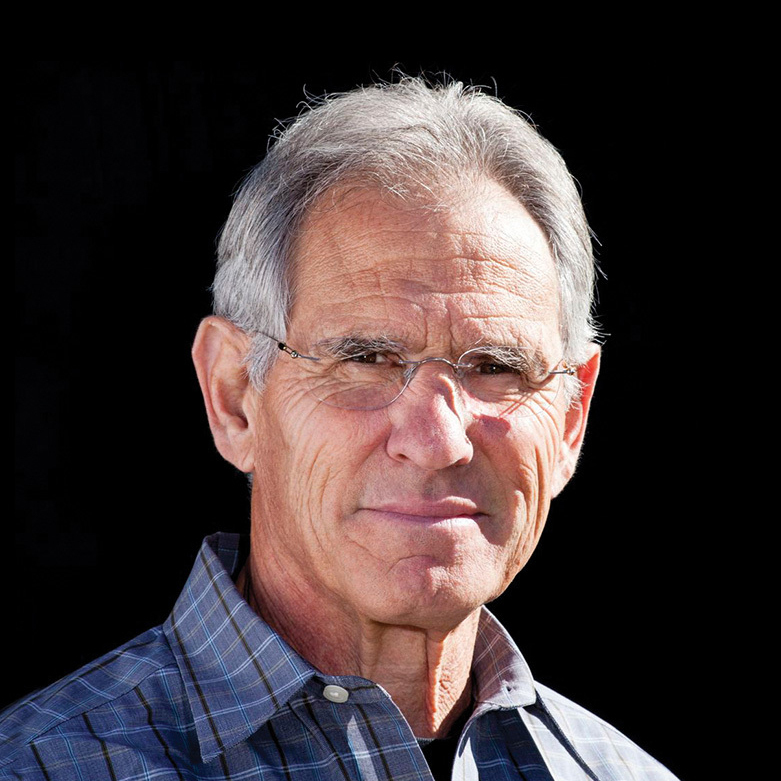 We're back with Season 3 of the show, starting with renowned meditation teacher, author, and creator of Mindfulness-Based Stress Reduction (MBSR), Jon Kabat-Zinn. This spacious and personal conversation is full of insights on a wide range of topics, including:
We're back with Season 3 of the show, starting with renowned meditation teacher, author, and creator of Mindfulness-Based Stress Reduction (MBSR), Jon Kabat-Zinn. This spacious and personal conversation is full of insights on a wide range of topics, including:
- what drew him to meditation;
- his development of and vision for Mindfulness-Based Stress Reduction (MBSR);
- the mystery of the line between the inside and outside of any system;
- adapting Buddhist practices for Western audiences;
- how mindfulness has been taken up in society, and science as a main driver;
- moving from "me" to "we";
- the challenges of repeatability in scientific studies of meditation;
- weaving together art and science;
- and how 50+ years of meditation has changed him.

Friday Aug 13, 2021
Vandana Shiva - Earth Democracy
Friday Aug 13, 2021
Friday Aug 13, 2021
I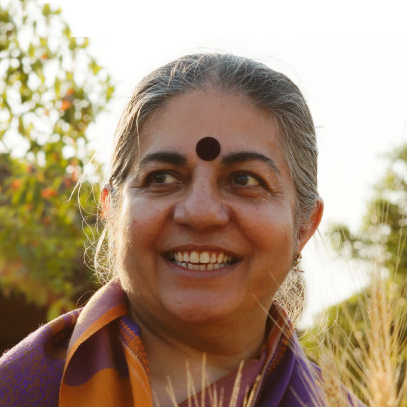 n this bonus episode, we're sharing a special presentation from environmentalist, physicist, and eco-feminist Vandana Shiva. This session is from our Summer Research Institute, held in June of this year, entitled The Mind, the Human-Earth Connection, and the Climate Crisis. We're adding this to the podcast feed because Vandana speaks powerfully about how the mind contributes to so many of the world's current emergencies, including health, hunger, poverty, climate, extinction, and injustice, exclusion, and inequality. Countering these outcomes of disconnection, Vandana offers Earth Democracy as a worldview, paradigm, and practice based on the recognition that everything is interconnected. She covers a lot of ground, touching on topics such as:
n this bonus episode, we're sharing a special presentation from environmentalist, physicist, and eco-feminist Vandana Shiva. This session is from our Summer Research Institute, held in June of this year, entitled The Mind, the Human-Earth Connection, and the Climate Crisis. We're adding this to the podcast feed because Vandana speaks powerfully about how the mind contributes to so many of the world's current emergencies, including health, hunger, poverty, climate, extinction, and injustice, exclusion, and inequality. Countering these outcomes of disconnection, Vandana offers Earth Democracy as a worldview, paradigm, and practice based on the recognition that everything is interconnected. She covers a lot of ground, touching on topics such as:
- the intellectual architecture of disconnection;
- the many ramifications of Cartesian dualism;
- the colonialist mindset of conquest and mastery;
- mistaken frameworks that try to dominate nature;
- how dead carbon leads to wars;
- food and our microbiome;
- quantum physics and interconnectedness;
- statistics and updates on the science of climate change;
- the economy of earth care;
- and the power of self-organizing systems within nature to heal ourselves and our world.

Friday Jul 09, 2021
David Sloan Wilson - Conscious Evolution
Friday Jul 09, 2021
Friday Jul 09, 2021
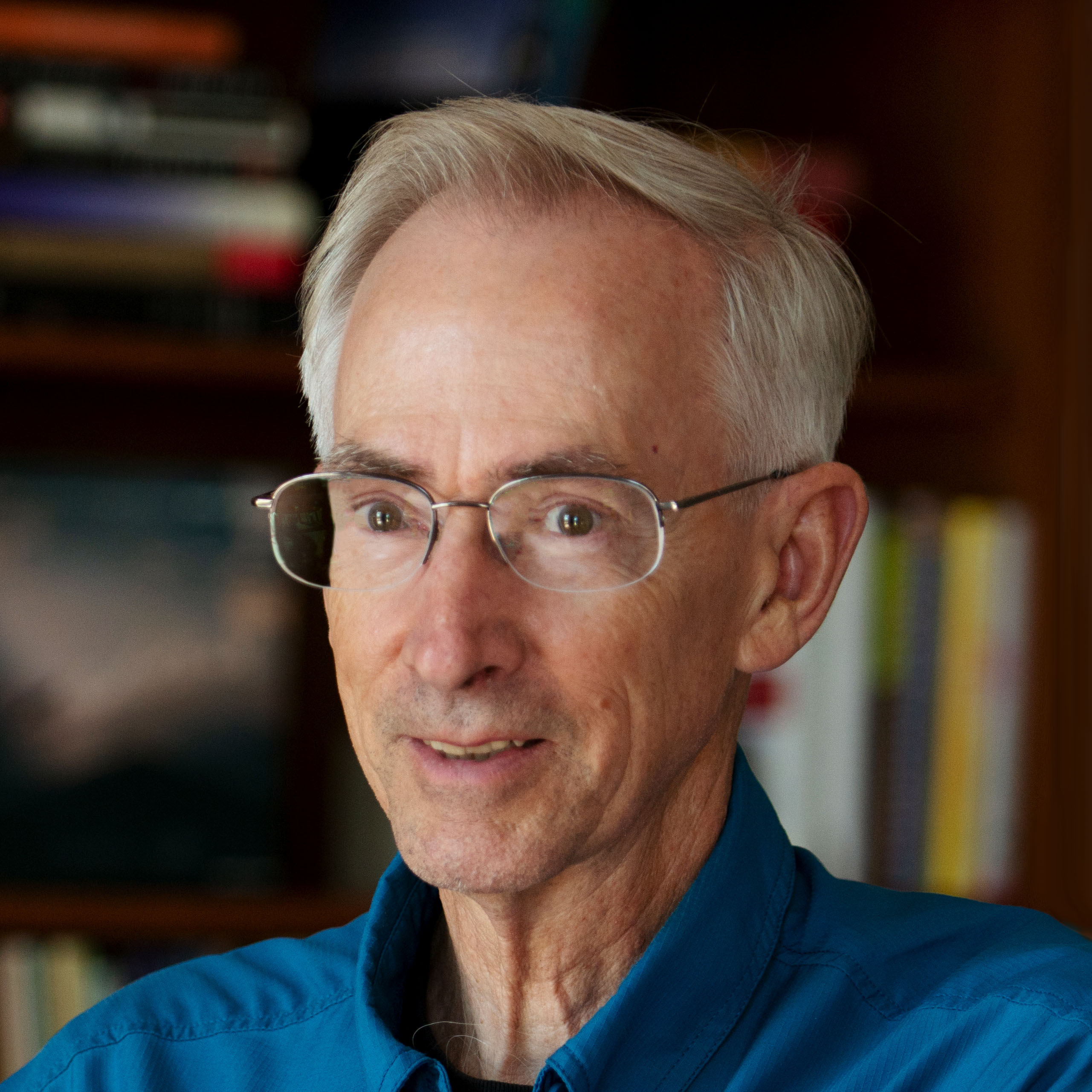 In this bonus episode, Wendy speaks with evolutionary biologist David Sloan Wilson. This episode is being released in conjunction with Mind & Life's new film, Evolution of the Heart — a short documentary covering conversations between the Dalai Lama, David Sloan Wilson, and social scientist Pumla Gobodo-Madikizela from a 2019 Mind & Life event in Dharamsala, India. The theme of that gathering was Compassion, Interconnection, and Transformation; please check out the film here! David’s work extends beyond genetics to include personal and cultural evolution, and sheds light on how we can move forward as a global community. In this conversation, they discuss many topics, including:
In this bonus episode, Wendy speaks with evolutionary biologist David Sloan Wilson. This episode is being released in conjunction with Mind & Life's new film, Evolution of the Heart — a short documentary covering conversations between the Dalai Lama, David Sloan Wilson, and social scientist Pumla Gobodo-Madikizela from a 2019 Mind & Life event in Dharamsala, India. The theme of that gathering was Compassion, Interconnection, and Transformation; please check out the film here! David’s work extends beyond genetics to include personal and cultural evolution, and sheds light on how we can move forward as a global community. In this conversation, they discuss many topics, including:
- the role of competition, cooperation, and prosocial behavior in human evolution;
- how evolutionary pressure operates at both individual and group levels (multilevel selection);
- the possibility of conscious evolution;
- what it means to be part of a group;
- expanding the notion of the self;
- becoming "bilingual" in scientific and spiritual perspectives;
- the need to create a system of ethics for the whole world;
- and core design principles for creating more egalitarian and compassionate communities.

Friday May 21, 2021
Dekila Chungyalpa - Human-Earth Connection
Friday May 21, 2021
Friday May 21, 2021
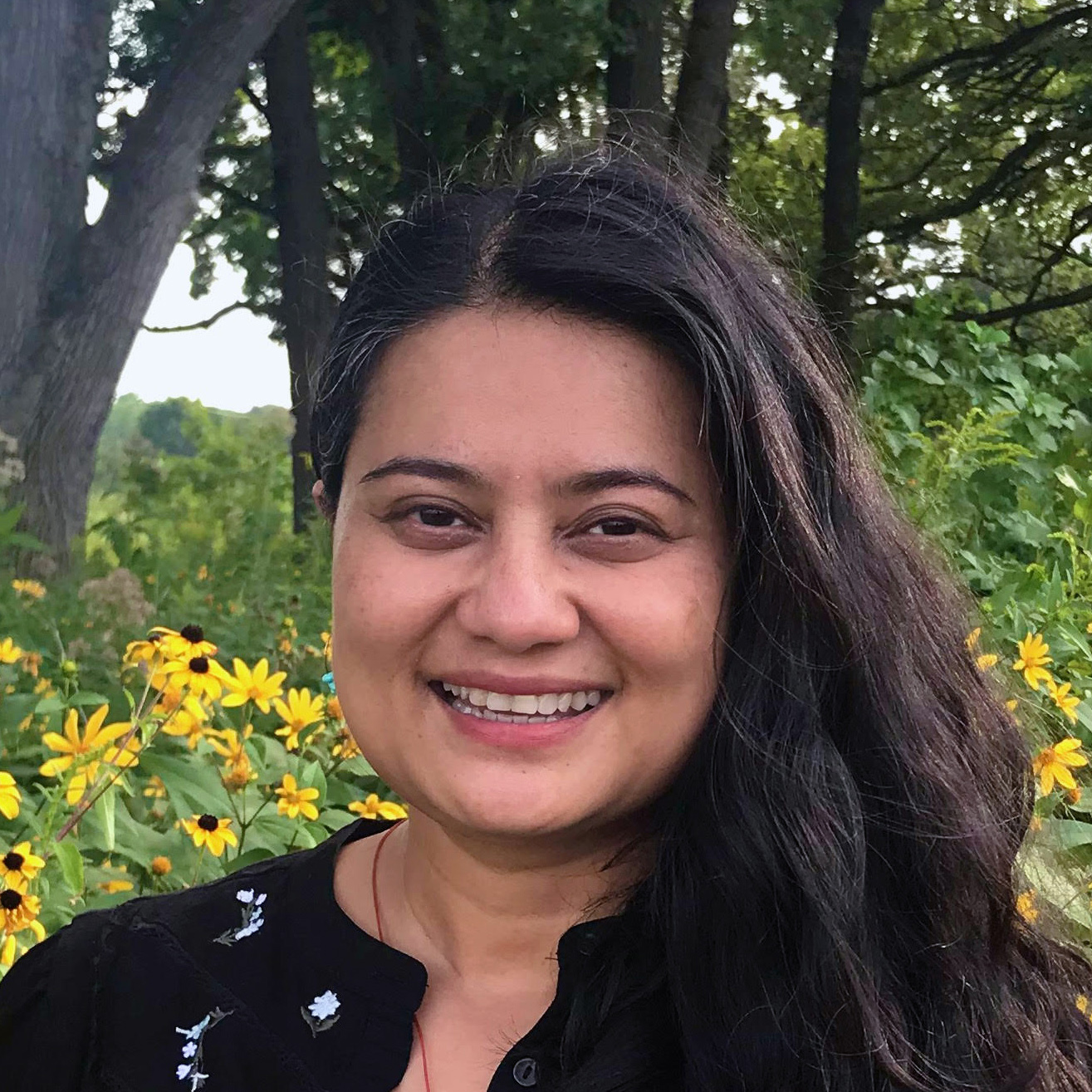 In this episode, Wendy speaks with environmentalist Dekila Chungyalpa about her views of nature, the climate crisis, and her unique collaborations with faith leaders. Their conversation covers many topics, including:
In this episode, Wendy speaks with environmentalist Dekila Chungyalpa about her views of nature, the climate crisis, and her unique collaborations with faith leaders. Their conversation covers many topics, including:
- growing up in the Himalayas and being interconnected with nature;
- the dominance of dualistic thinking in the West, and the dangerous separations it creates;
- embracing a framework of interdependence;
- the role of indigenous wisdom in conservation;
- her own experience dealing with eco-anxiety;
- working with faith leaders to move the needle on environmental issues;
- weaving together Buddhist values and activism;
- bridging science and religion;
- and the need for compassion and community in facing the climate crisis.

Friday May 07, 2021
Peter Wayne - Ecology of Mind
Friday May 07, 2021
Friday May 07, 2021
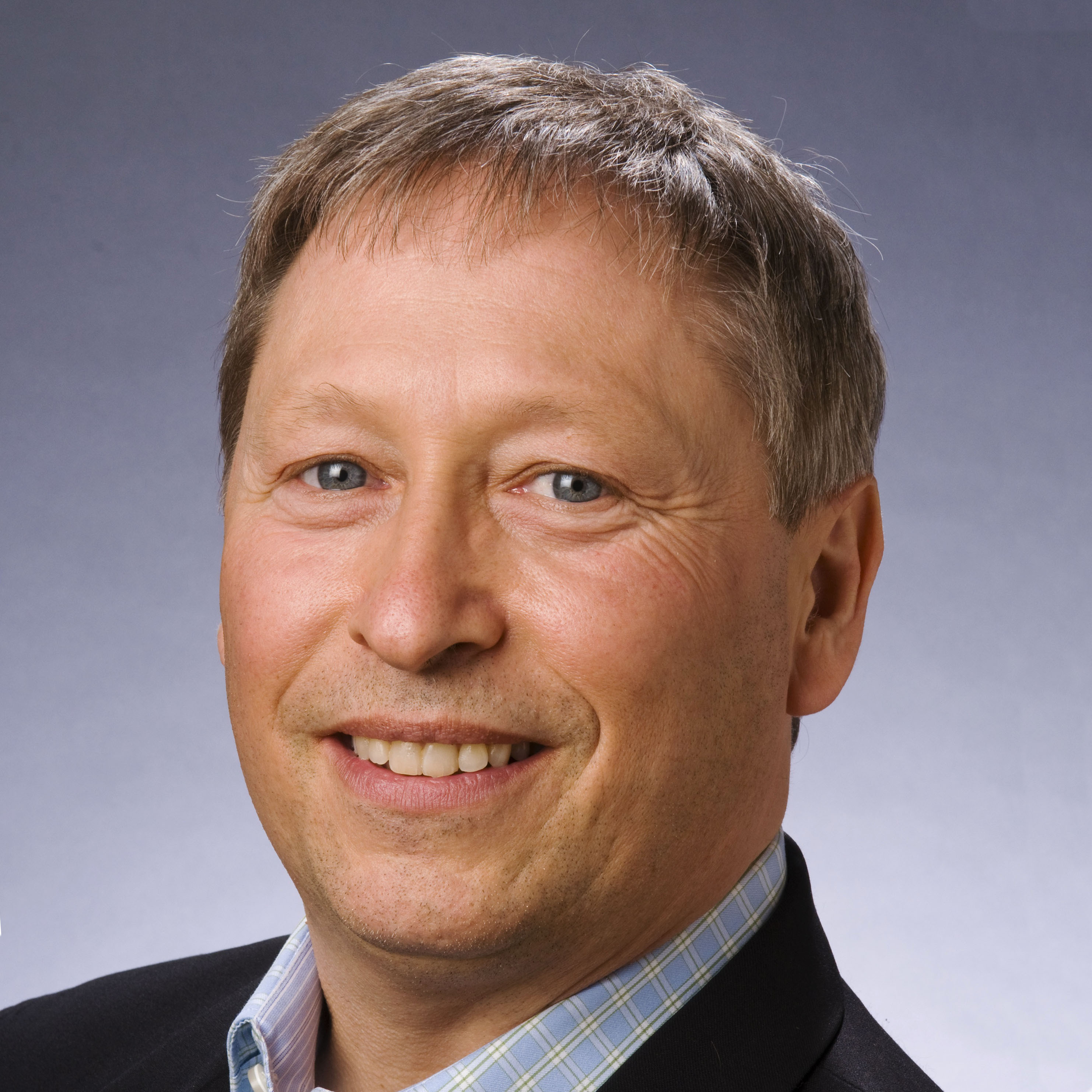 In this episode, Wendy speaks with clinical researcher Peter Wayne about his work on mind-body and movement-based interventions like tai chi. Their conversation covers many topics, including:
In this episode, Wendy speaks with clinical researcher Peter Wayne about his work on mind-body and movement-based interventions like tai chi. Their conversation covers many topics, including:
- how a background in ecology informs his research;
- embracing multiple causes of any outcome;
- how to do non-reductionist science;
- removing the hyphen from the mind-body system;
- harnessing the wisdom of the body through contemplative practice;
- the value of first-person narrative in research;
- safety and trauma in the body;
- the relationship between physical and emotional patterns;
- how the concept of the subtle body relates to Western views;
- the role of integrative medicine in dealing with climate change;
- and bringing together multiple perspectives to investigate the mind & healing.

Thursday Apr 22, 2021
Mingyur Rinpoche - Awareness, Compassion, and Wisdom
Thursday Apr 22, 2021
Thursday Apr 22, 2021
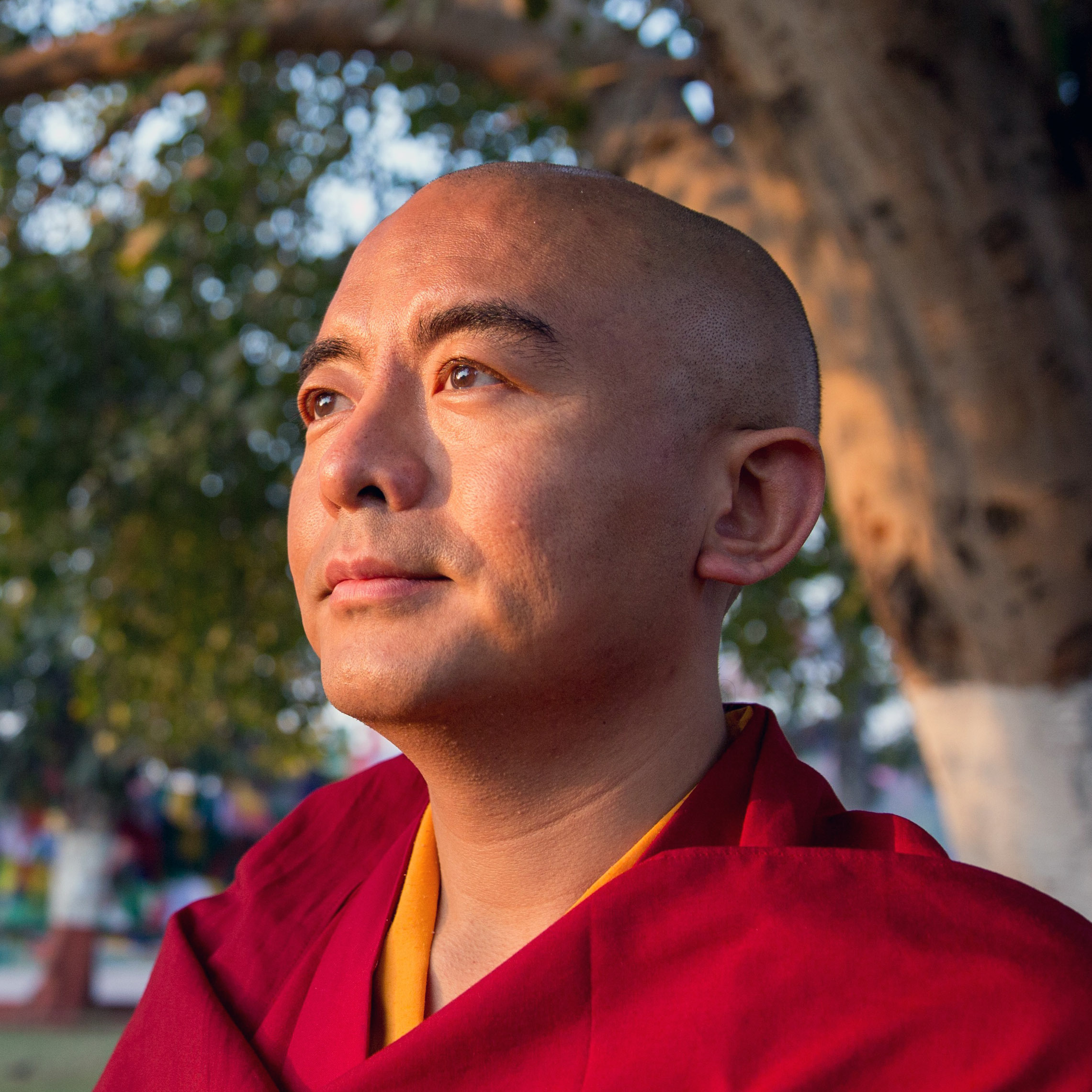 In this episode, Wendy speaks with Tibetan Buddhist teacher Mingyur Rinpoche about how contemplative practice can lead us to awareness, compassion, and wisdom. Their conversation covers many topics, including:
In this episode, Wendy speaks with Tibetan Buddhist teacher Mingyur Rinpoche about how contemplative practice can lead us to awareness, compassion, and wisdom. Their conversation covers many topics, including:
- his involvement in early contemplative research;
- translating concepts between Buddhism and science;
- what Buddhists mean by "emptiness";
- non-conceptual meditation, open presence and foundational awareness;
- the three kinds of self, and which one is like shaving foam;
- the problem of othering;
- making friends with panic and difficult emotions;
- the experience of a "wandering" retreat;
- and building trust through contemplative practice.

Friday Apr 09, 2021
Buju Dasgupta - Social Context & Implicit Bias
Friday Apr 09, 2021
Friday Apr 09, 2021
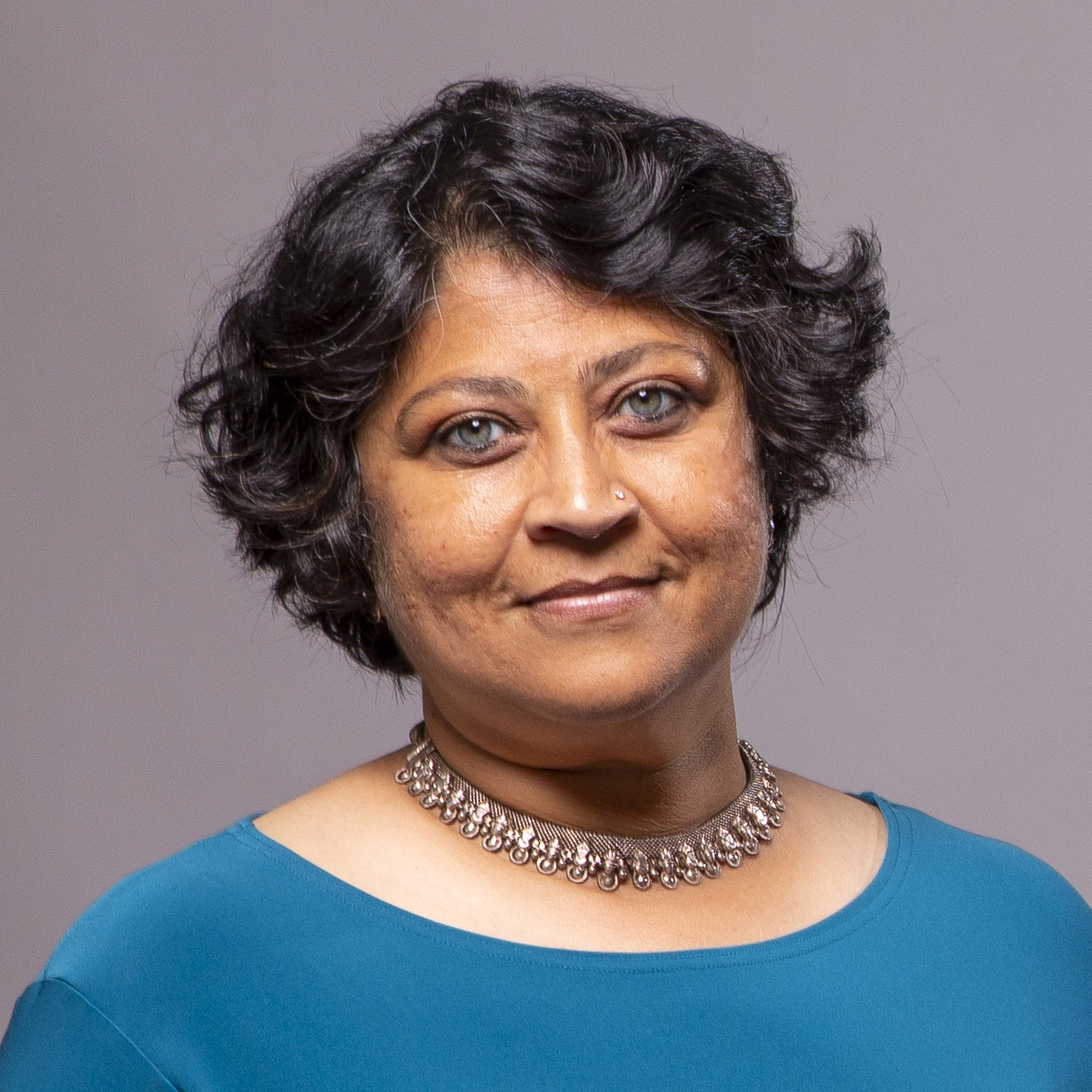 In this episode, Wendy speaks with social psychologist Buju Dasgupta about her work on implicit bias, and the role of social context in shaping the mind. Their conversation covers many topics, including:
In this episode, Wendy speaks with social psychologist Buju Dasgupta about her work on implicit bias, and the role of social context in shaping the mind. Their conversation covers many topics, including:
- her path to merging science and social justice;
- the crucial role of social context in implicit bias;
- the malleability of implicit bias & the "wallpaper" of the mind;
- how scientists measure unconscious processes (like implicit bias);
- changing bias against women and underrepresented groups in STEM education;
- links from this work into contemplative science;
- increasing cross-disciplinary collaboration to advance research around equity;
- the subtle ways we can change implicit bias by changing the wallpaper of our lives;
- and turning research into social impact.

Friday Mar 26, 2021
Larry Barsalou - Habits of Mind
Friday Mar 26, 2021
Friday Mar 26, 2021
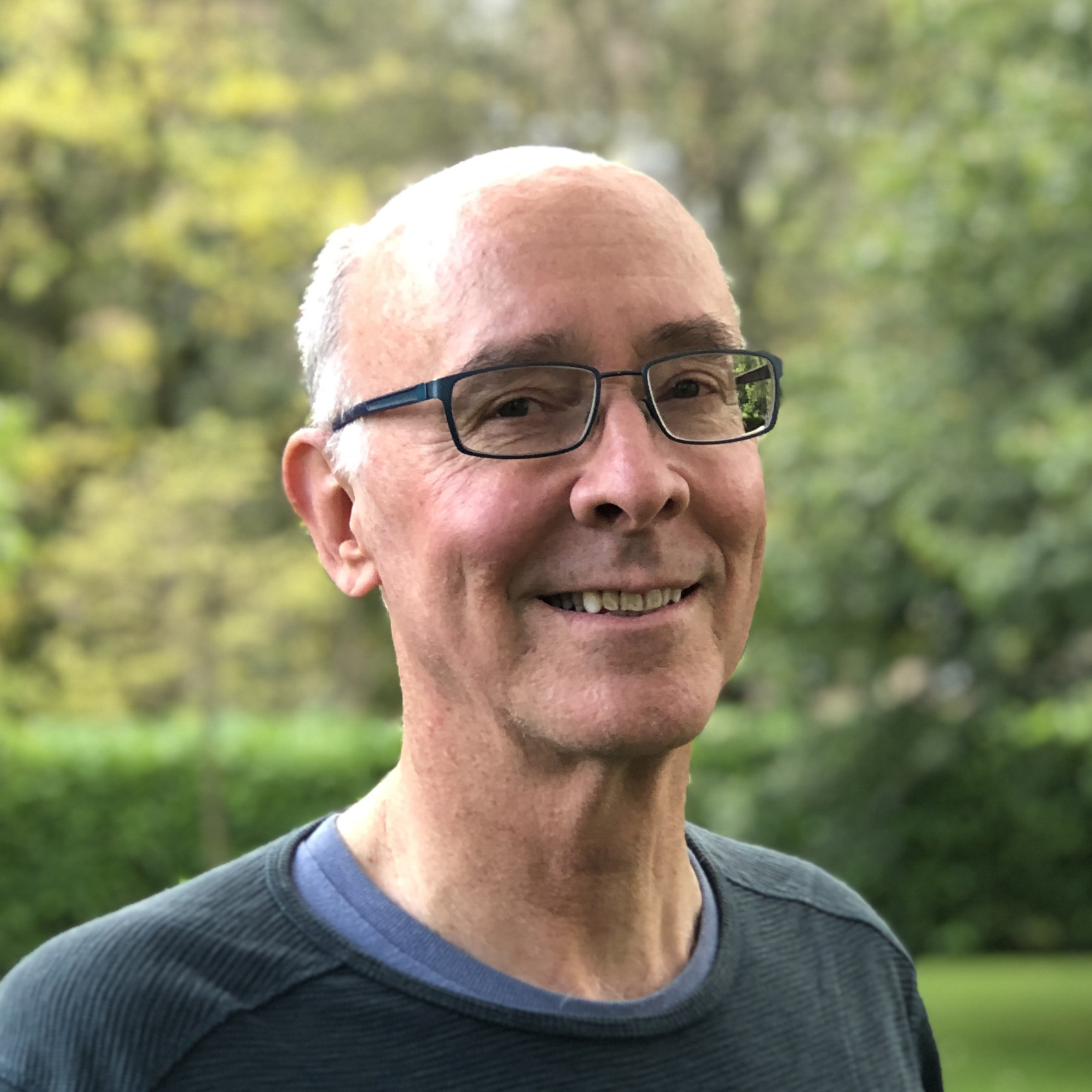 In this episode, Wendy speaks with cognitive psychologist Larry Barsalou about his work on grounded cognition, concepts, stress, and habits. Their conversation covers many topics, including:
In this episode, Wendy speaks with cognitive psychologist Larry Barsalou about his work on grounded cognition, concepts, stress, and habits. Their conversation covers many topics, including:
- a historical look at how psychology has viewed and studied the mind;
- simulation and prediction in the brain;
- what a concept is, and benefits and harms they can bring;
- stereotypes, implicit bias, and how we might change them;
- the "situated action" cycle that drives our behavior;
- understanding habits, and the role of mindfulness in breaking unhealthy habits;
- how humans form self-concepts, and how meditation can help us move beyond them;
- the importance of context (situatedness) in cognition, and how to study it scientifically;
- and how he got interested in contemplative science.

